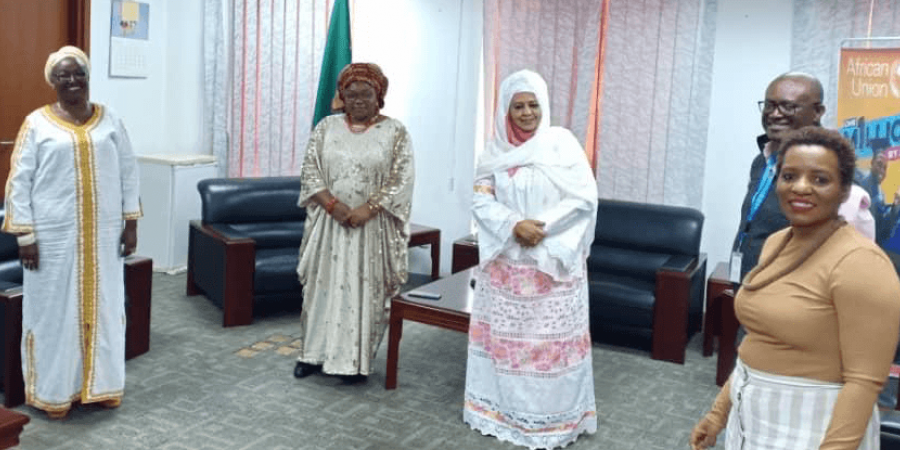In celebration of the 30th anniversary of the African Charter on the Rights and Welfare of the Child, The African Union’s Department of Human Resources, Science and Technology and Department of Social Affairs partnered with The United Nations Children's Fund (UNICEF) to host a Virtual Couch Talk on 16 June 2020.
The Couch Talk allowed for youth to see their duty-bearers in a way they had never seen them before, through their personal life experiences and professional contributions they recalled that in this same year, as children’s rights were being put front and centre of the development agenda, some of them were already working at manufacturing plants and in their governments while others were completing university degrees. The high-level panellists examined the progress that the continent has made in implementing child rights since the Charter of the Rights of the Child came into being 30 years ago.
The panellists were a collective of policymakers with a wealth of knowledge among them, they included, H.E Thomas Kwesi Quartey Deputy Chairperson of the African Union Commission, H.E Prof. Sarah Anyang Agbor AU Commissioner of the Human Resources, Science and Technology, H.E Amira El-Fadil AU Commissioner of Social Affairs, H.E Josefa Leonel Sacko AU Commissioner of Rural Economy and Agriculture, H.E Victor Harrison AU Commissioner of Economic Affairs, H.E Henrietta Fore UNICEF Executive Director and Dr Edward Addai UNICEF Representative to the AU and ECA and Ambassador Rosette Nyirinkindi Special Advisor to the AU Chairperson on Regional Integration.
During the 90 minutes virtual conversation H.E Henrietta Fore, UNICEF Executive Director, highlighted that children may harbour feelings of anger, stress and worry at the way of the current world, she expressed the importance of prioritizing mental health care of children, especially in a digitally volatile world.
“If we focus on the education of our children and empower them to be citizens of the continent who can question and challenge the norms that will allow us to deliver on Africa we all want,” H.E Thomas Kwesi Quartey, AUC Deputy Chairperson emphasised on the importance of the education in the advancement of the children’s agenda.
The high-level conversation focused on three foundational elements that are imperative to the welfare of children; family and early childhood development, education and skilling, and safety, both physical and psychological. Other issues discussed included the right that children have to a nationality, a passport and a name – rights often discarded for refugee children and Silence the guns on the continent as it remains imperative to centre the welfare of children in interventions
The panellist’s discussion led to commitments to H.E Prof. Sarah Anyang Agbor that they would mainstream child rights in their respective portfolios and focus on the child to youth continuum, as more concerted efforts are put towards ensuring the continued success of the Charter.



